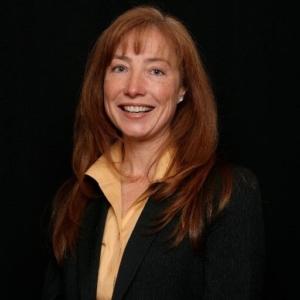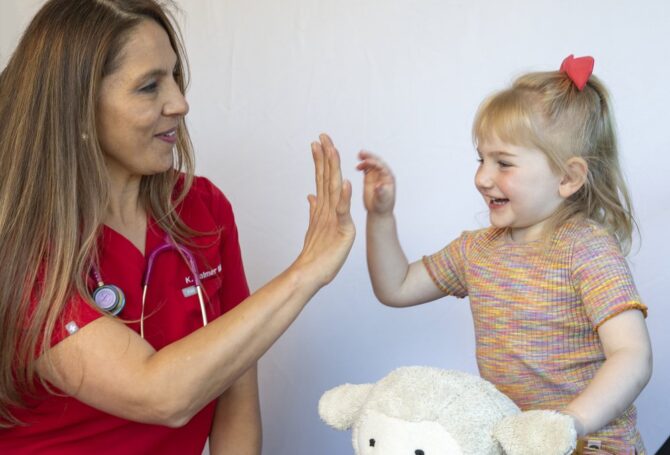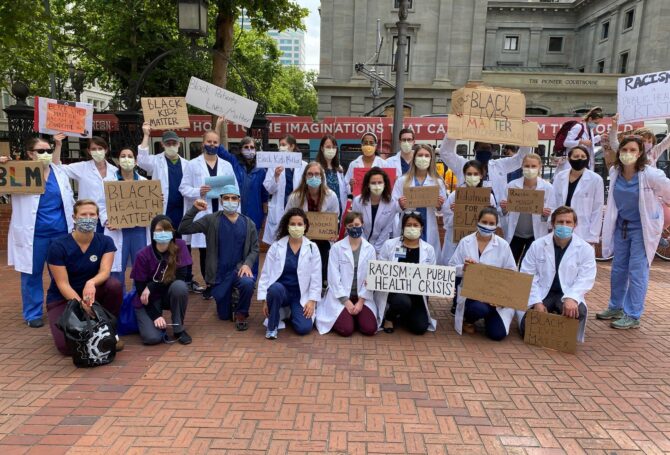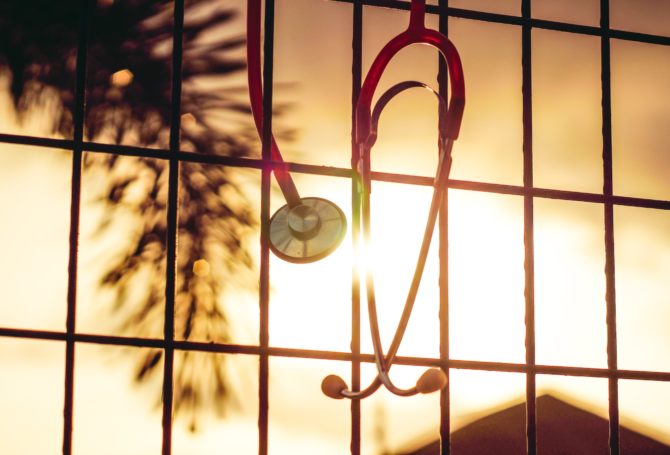September 23, 2021
OPS member Helen Miller, MD, FAAP, FACEP, CPE, has always had a passion for the mission and service of disaster planning. She learned about disaster medical teams while training for a Pediatric Emergency Medicine fellowship at Cincinnati Children’s Hospital Medical Center, where she also received her medical degree. Ten years later Dr. Miller, originally from Portland, returned to the West Coast and split her time between a pediatric practice in Eugene and shifts in the newly opened Pediatric Emergency Department at OHSU’s Doernbecher Children’s Hospital.
service of disaster planning. She learned about disaster medical teams while training for a Pediatric Emergency Medicine fellowship at Cincinnati Children’s Hospital Medical Center, where she also received her medical degree. Ten years later Dr. Miller, originally from Portland, returned to the West Coast and split her time between a pediatric practice in Eugene and shifts in the newly opened Pediatric Emergency Department at OHSU’s Doernbecher Children’s Hospital.
She then volunteered on a regional disaster team in Washington with the goal of establishing a state-based team in Oregon. Collaborating with a group of other physicians, Helen created the nonprofit disaster medical organization, Oregon Disaster Medical Team. In 1999 they partnered with the federal government to represent Oregon in the National Disaster Medical System (NDMS). At the time there was no pediatric equipment in the national cache, so Dr. Miller ensured that their team had pediatric representation, working “to advocate for kids and for the system to remember kids.”
Last October Helen retired from her federal position as Disaster Medical Assistance Team (DMAT) Commander for Oregon. Her 25 years of service included disasters like the World Trade Center bombing; security events; hurricanes; and earthquakes and tsunamis, where she addressed the unique challenges presented when operating in a field environment. While she no longer sees patients, Dr. Miller stays busy by helping with vaccine clinics in Oregon and recently joined the Executive Committee of the National Pediatric Disaster Coalition.
She also started a new nonprofit, the Cascadia Coastal Coalition, which focuses on rural community disaster readiness. Earlier this month they hosted a successful hybrid presentation, Patient Movement and Emergency Communications Interoperability in a Cascadia Earthquake Event. It was an exciting opportunity to unite people from Newport to Florence to Coos Bay who may not work together day-to-day, but who likely would work together during a disaster event. Dr. Miller hopes this can lay a foundation for future training, response, and recovery planning activities and to build whole-community resilience.
9/23/21



